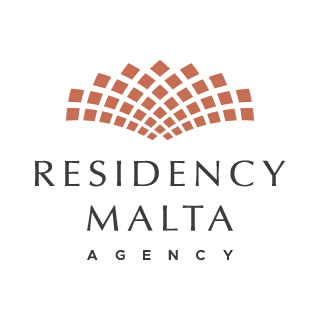General
The programme requirements state that applications for a certificate shall be accompanied by confirmation to the satisfaction of the Agency that the main applicant and his dependants are not suffering from any serious illness or contagious disease and that they are otherwise in good health and will not be, in terms of the medical review carried out by the Agency, of an unreasonable burden on the national health system. Would an individual who has been diagnosed as being a Hep B carrier be eligible to apply?
The requirement is that the individual must be completely free from the contagious disease to be eligible for the programme. Hence, as an example, an individual who is clinically fit and does not suffer from any acute or serious pathology but is in Hepatitis B carrier state with low infectivity, he would still be harbouring a contagious condition and for this reason he is medically not eligible to qualify for the Malta Residency programme.
For avoidance of doubt, it is strongly suggested that such situations are clarified with the Agency before submitting the application. This is because if at a later stage it results that the Main Applicant is not eligible, this alone would already result in the application not being approved. If the non-eligibility pertains only to a dependant(s) , the dependent(s) will not be approved as part of the application.
In all cases, the Agency’s decision as to whether an individual is to be considered as medically eligible or not is final.
Can the decision of a refused request for residence be appealed?
No. The Approvals Board decision is final and cannot be appealed.
What is the difference between a benefactor and a donor? Which documentation is required in each case?
The Donor
A donor is a person who, at a certain point in time, has contributed to the accumulation of total wealth of the main applicant, with a one-time donation. In this case the following documents are to be submitted:
- The passport bio page and page containing signature of the donor(s), required as a means of verification of the signature in all cases (in addition to the deed of the donation, etc);
- Benefactor documents (listed below) are required if the donation/s form/s a considerable part of the wealth and/or have had a considerable impact on the applicant’s wealth In view of this, the agent and/or the main applicant should in the first instance assess this themselves, and if according to their judgement, the circumstances require such documents to be submitted, they do so with the initial application to speed up the process. In any case, however, the Agency reserves the right to ask for these documents at a later stage, if from our assessment it results that the donation’s impact on the wealth requires such documents.
The Benefactor
A benefactor is a person who takes the responsibility to cover the financial requirements established by the law that would qualify the main applicant as eligible for the issuance of the certificate of residence. The benefactor will be screened by our due diligence process as the source of funds of the main applicant. Therefore, the following documentation must be submitted:
- Form MPRP2, in the name of the benefactor, all sections fully completed (including the Source of Funds and Wealth section);
- Form MPRP 4;
- 3-month bank statements for the benefactor’s account from which the funds for the MPRP application will be remitted;
- Certified true copy of all valid passports of the benefactor (ALL pages);
- Evidence of current employment (if applicable);
- Evidence of business ownership (for business owned in part or in whole by the benefactor) - For more information, please refer to question Q56.
- Sworn declaration that the benefactor will fund the main applicant’s MPRP application and all the related financial obligations and will also provide the main applicant with stable and regular resources;
- A copy of the biometrics data page;
- Police certificates from the benefactor’s country of origin, his/her current residence and any country he/she has lived in for a period of over 6 months in the past 10 years.
The main applicant should still complete Form MPRP2 in its entirety and provide a 3- month bank statement of his/her personal bank account.
Our client is an EU national, and his partner is a third country national. Client wishes to apply for the MPRP for his partner. In this regard, since client is of European nationality, thus prohibited from applying for the programme, may his partner (third country national) apply for the MPRP while client acts as her benefactor?
Legislation does not impede him/her from submitting an application as main applicant, supported by a benefactor.
What would the consequences be should beneficiary divorce from his/her spouse?
In the case of a divorce, the beneficiary’s spouse and his/her parents and grandparents will lose residency rights. This might also affect the spouse’s children whose other biological parent is not the beneficiary and who would have been included as dependants under the application. Each case will be assessed on its own merits.
Which forms relate to data protection?
Form MPRP10 provides for compliance with the General Data Protection Regulation EU2016/679 (GDPR). All applicants are to give their consent by signing this Form. In case of a dependant who is a minor on day of application a Form MPRP10 is still required and has to be signed by one of the parents (which parent must be part of the application).
